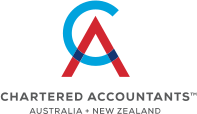So you’ve decided to buy a medical practice. Now what? The following tips from the Nitschke Nancarrow medical accountants and financial advisers will ensure that your purchase goes as smoothly as possible.
[Before you read on … Nitschke Nancarrow has recently launched DocWealth, a wealth, accounting and financial planning firm exclusively for doctors and medical practice owners. Get free resources, podcasts and insights here.]
1. Pay Attention to Location
Location, location, location – it really is everything! A medical practice may have an established patient base and a history of functioning well but you want to choose a practice that’s literally poised to grow. Look to buy a well-established practice that serves an exploding local population or is fulfilling a unique demand in the area.
2. Leave Yourself Room to Grow
You’re not buying an existing medical practice just to keep letting it run as it is. You’re making an investment in your future. This means that you need to leave yourself some room to grow and progress.
Buy a practice that has both physical space and room in the lease that will let you expand to accommodate a growing patient base and medical team. Always think several years down the road when purchasing a practice!
3. Carefully Consider the Structure
First of all, you’ll have to give some serious thought to how you’ll structure your new business once you’ve purchased a medical practice. Individual, partnership, trust, company – these each have unique benefits, tax implications and obligations. Make sure you know which entity you’ll run the practice under so that you can make the right decisions for it from here on out.
4. Analyse Existing Systems and Processes
No two medical practices function exactly the same way. The processes and systems used in each clinic are adopted to meet the needs of the unique team of people who work there. You may have a preference for certain software or technology that just isn’t used in a particular practice.
Is this something you can compromise on? Can you adapt to the systems and processes used in the prospective practice or are you willing to put in the time and money necessary to introduce your preferred methods to the existing team?
5. Get to Know the Team
When you are well acquainted with the current staff members working at the practice, you will have a better idea of how things will work once you take over. If possible, spend some time working at the practice before you purchase it. This will give you valuable insight into the team dynamics and make for a smoother transition should you decide to buy.
6. Make the Practice Your Own
Now that the practice is all yours, it’s time to let everyone know. Spread the word that there’s a new doctor in the house! Put a fresh coat of paint on the walls. Add a few extra waiting room amenities that will make your patients more comfortable. Bring in that specialist equipment and new imaging technology.
Choose one big project to get started on that will mark this new place as uniquely yours and draw in the kind of patients and partner doctors that you’re looking to attract.
7. Introduce Changes Gradually
If you’re buying up a practice that already has a functioning medical support team, then you need to be cautious about making radical changes. The people working there likely already have a system and environment that they’re used to. Sudden changes can lead to confusion, miscommunication and frustration. It’s good to make plans for positive changes to the practice’s processes and atmosphere, but do so at a rate that everyone can adjust to.
8. Examine the Finances Carefully
You need to take a careful look at both your own finances and those of the prospective practice. Although buying an existing medical practice can be cheaper than starting a new one, there are still considerable costs associated with transitioning into the practice.
The practice’s financial history in itself isn’t what should make-or-break the deal for you. But you do want to be aware of any debts or liabilities and understand what the financial management has been like.
9. Have Sufficient Insurance Cover
Protecting yourself is one of the most important things when you buy a medical practice. You don’t want any liabilities attached to the new place to affect your career advancement or professional reputation. What’s more, as a doctor, you rely on your skills and knowledge to draw in the patient base that keeps a practice running. The business won’t do well if you fall ill and can’t work. Adequate insurance will protect you in case adverse circumstances befall you.
10. Get in touch
Nitschke Nancarrow are experts in the business of medical professionals, including medical practice aqusitions, running a medical practice, or a personal tax or investment matter – contact us to get the right advice.
Contact Nitschke Nancarrow managing partner Kym Nitschke for a free initial discussion about your situation. Call us on (08) 8379 9950 or send me an email.
– Kym Nitschke
The information contained on this web site is general in nature and does not take into account your personal situation. You should consider whether the information is appropriate to your needs, and where appropriate, seek professional advice from a financial adviser.
Taxation, legal and other matters referred to on this website are of a general nature only and are based on Nitschke Nancarrow’s interpretation of laws existing at the time and should not be relied upon in place of appropriate professional advice. Those laws may change from time to time.
Nitschke Nancarrow specialises in accounting, tax and financial advice for superannuation. Contact us now for a no obligations discussion about your needs.














